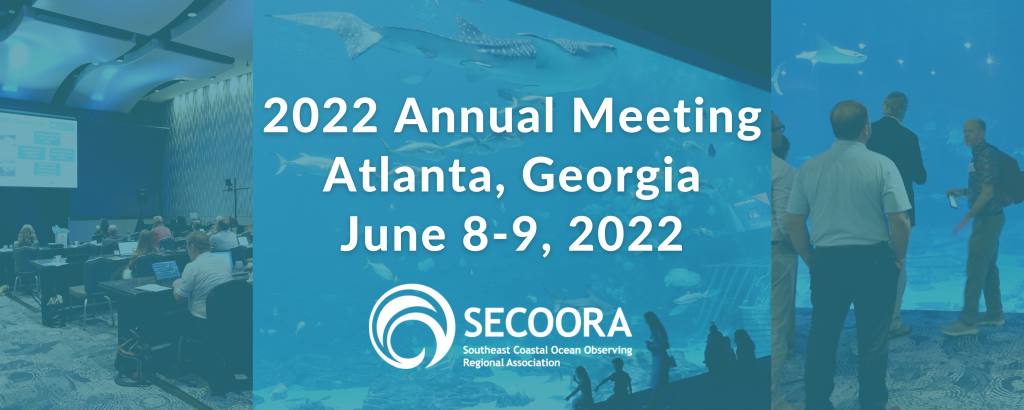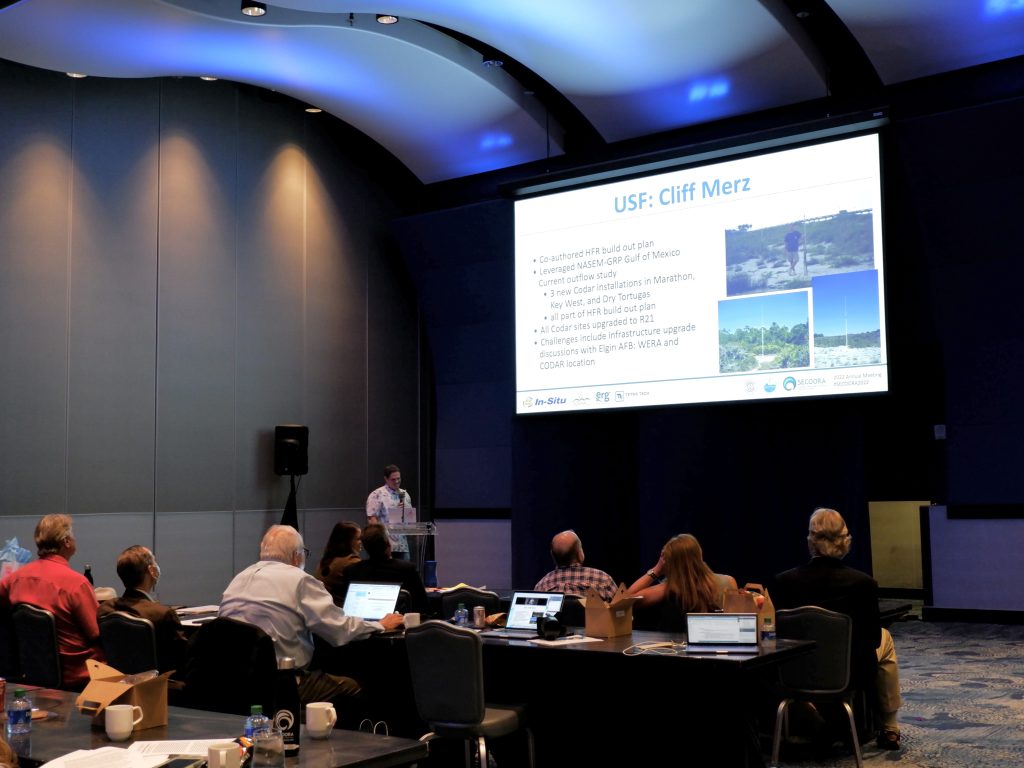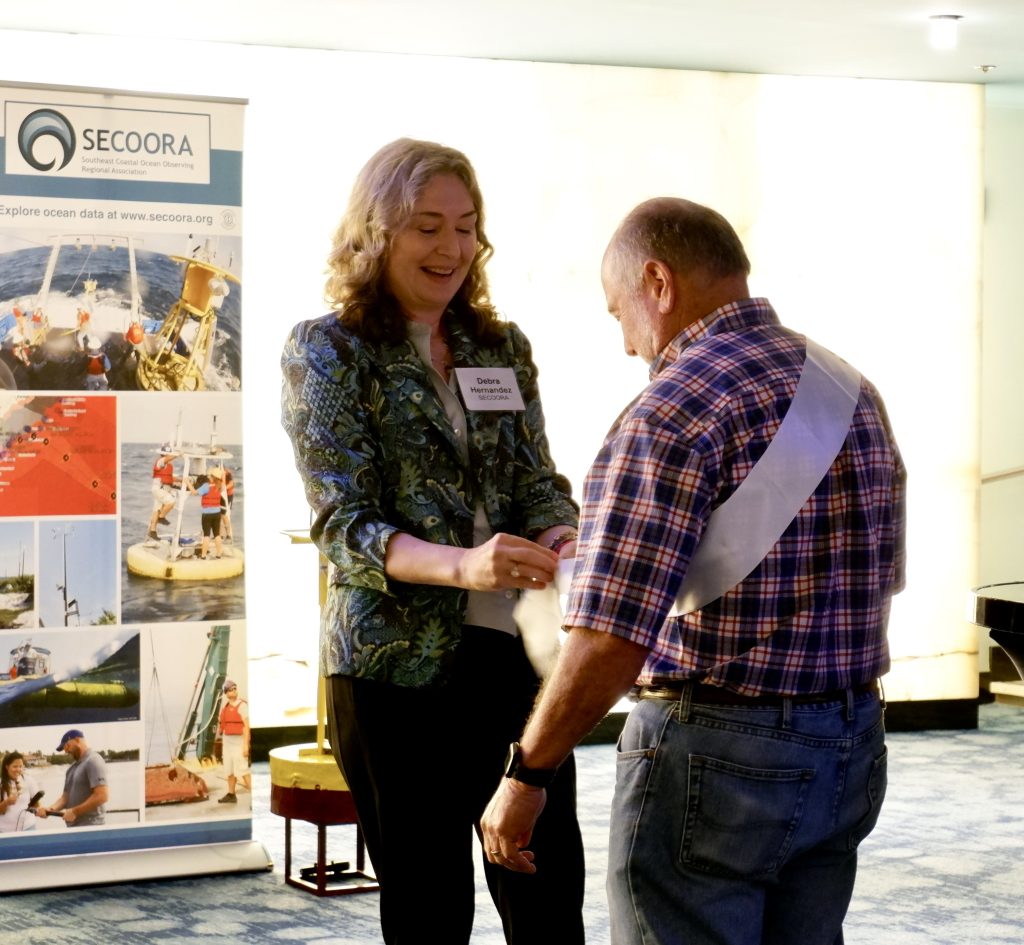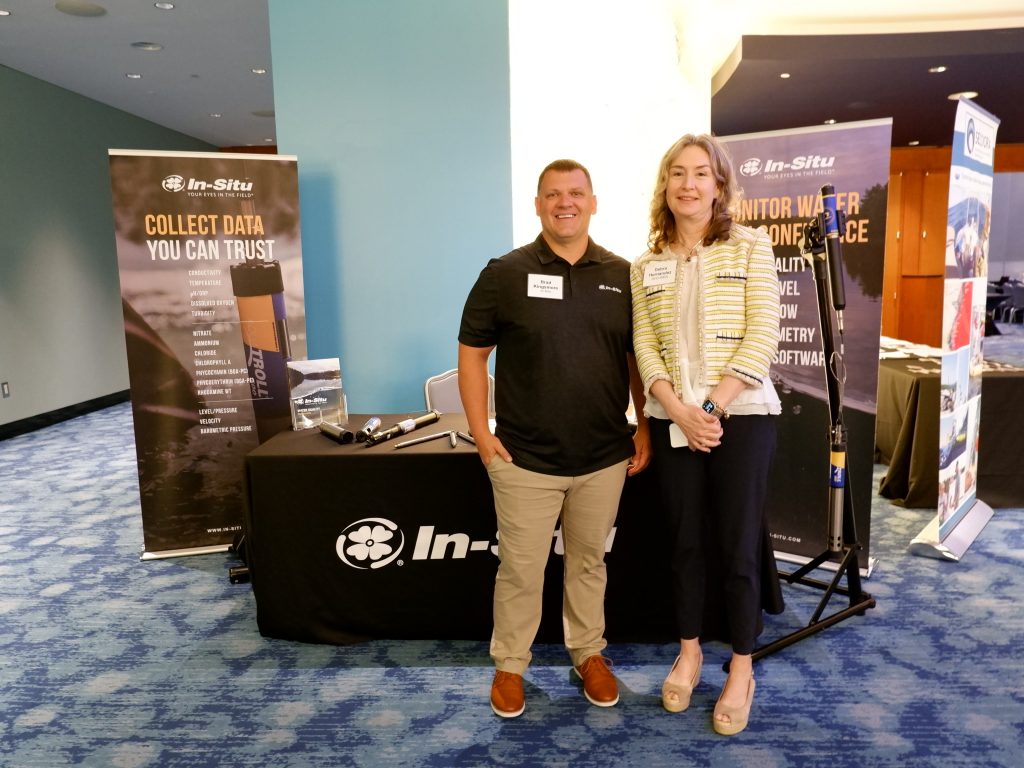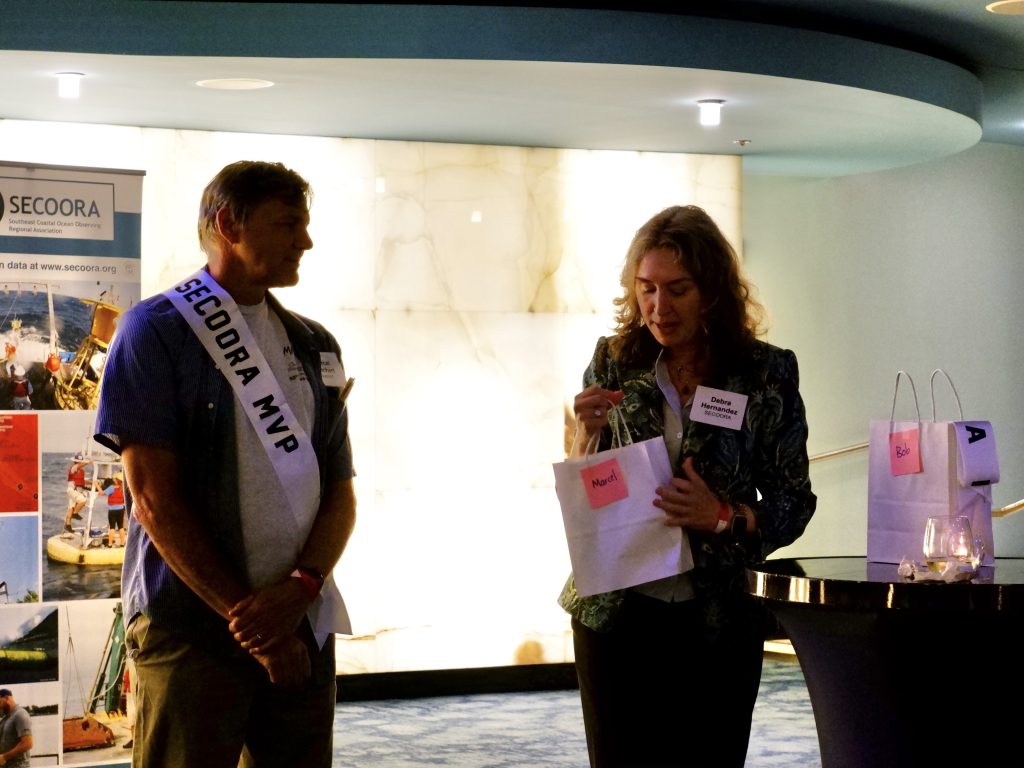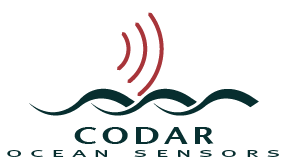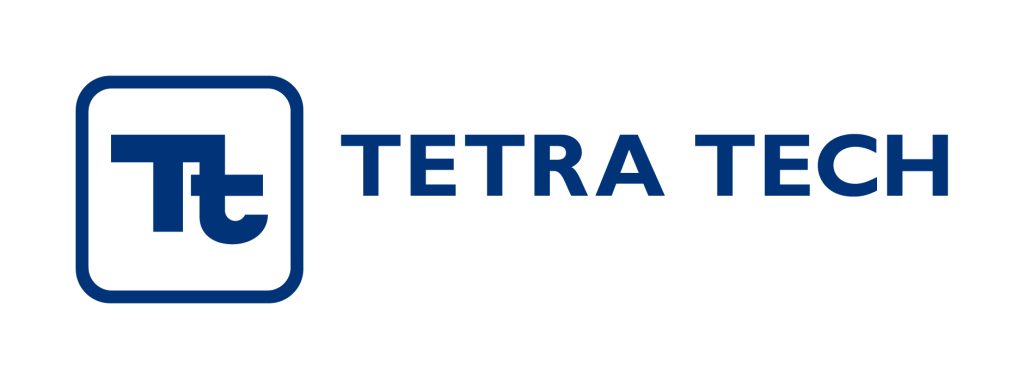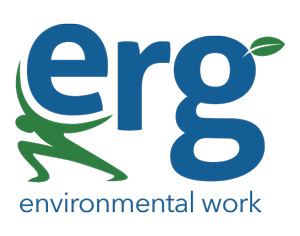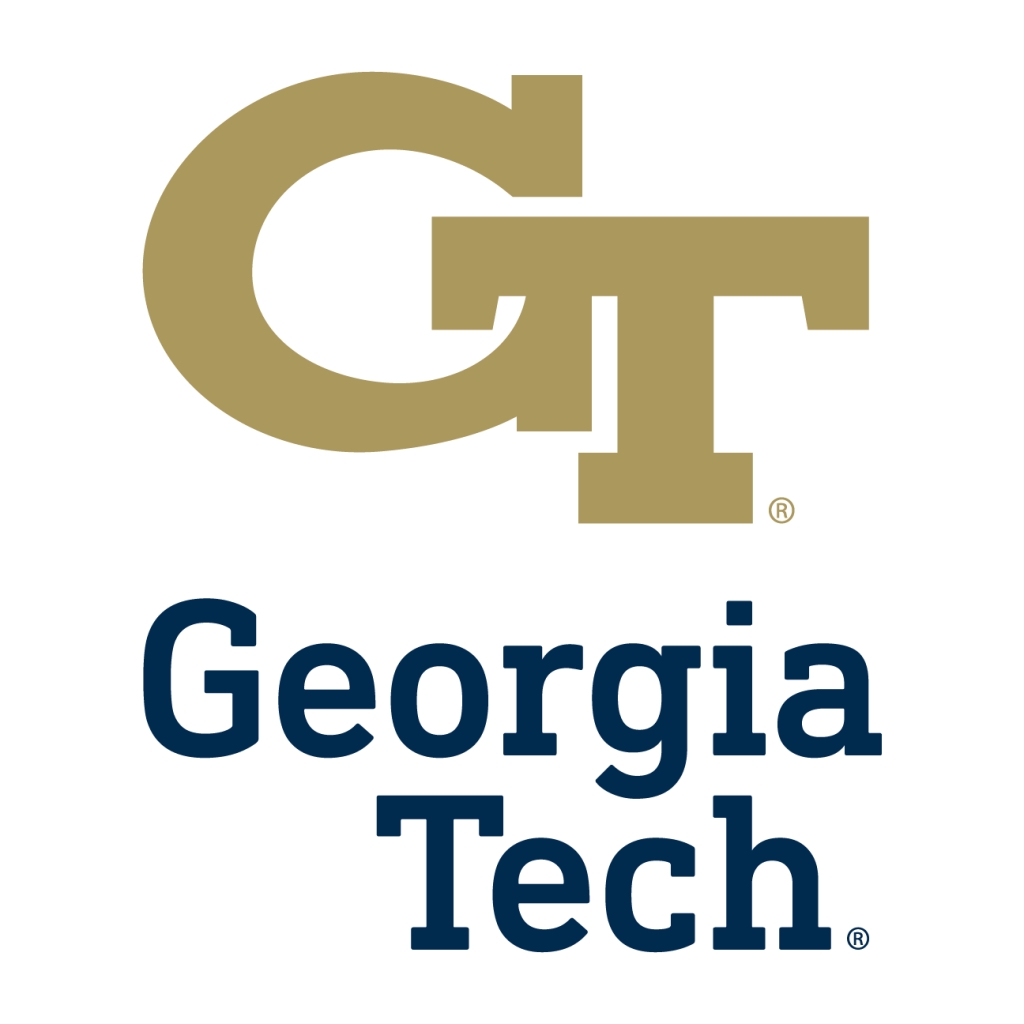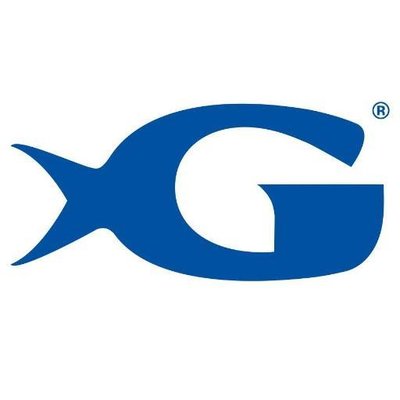Our 2022 Annual Meeting brought together coastal ocean scientists from around the Southeast to Atlanta, Georgia on June 8-9, 2022. The meeting focused on SECOORA-funded projects and low-cost observing technology. The meeting provided scientists the opportunity to participate in the ocean observing conversation and network with coastal ocean scientists from around the Southeast. Meeting materials are posted below.
2022 Annual Meeting Summary
Thank you to everyone who joined us for SECOORA’s 2022 Annual Meeting on June 8-9 in Atlanta, Georgia. The meeting included a Board and Members Business meeting, Principal Investigators (PIs) lightning talks, SECOORA’s updates, and a Lower Cost Observing Panel, and biological demonstrations. Below are highlights from the meeting.
Day 1
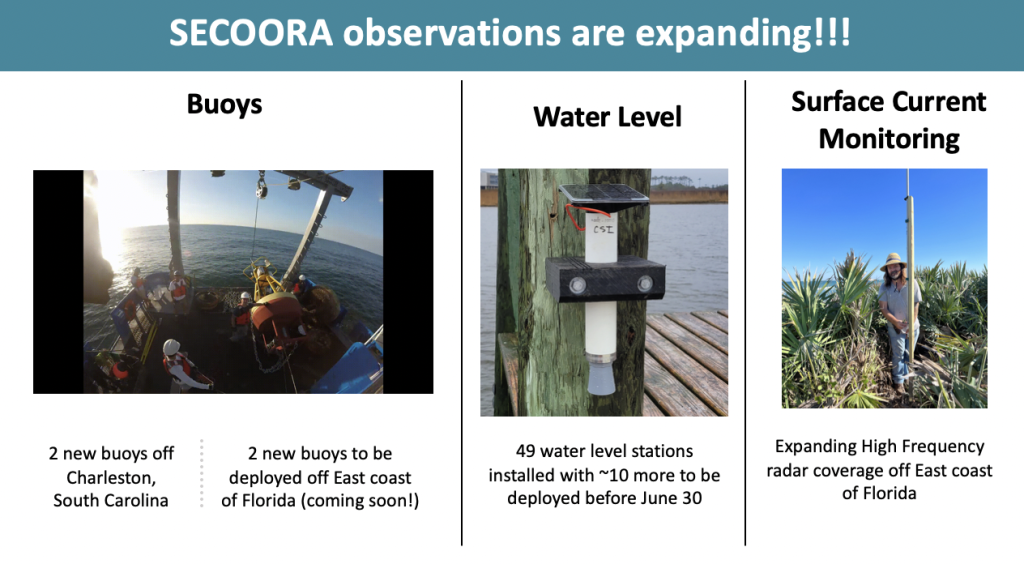
The meeting kicked off with a celebration – SECOORA observations are growing. Two new buoys were deployed off the coast of Charleston, South Carolina to support ship operations and harbor pilots. There are over 49 water level stations installed in the Southeast, with ~10 more to be deployed before June 30.
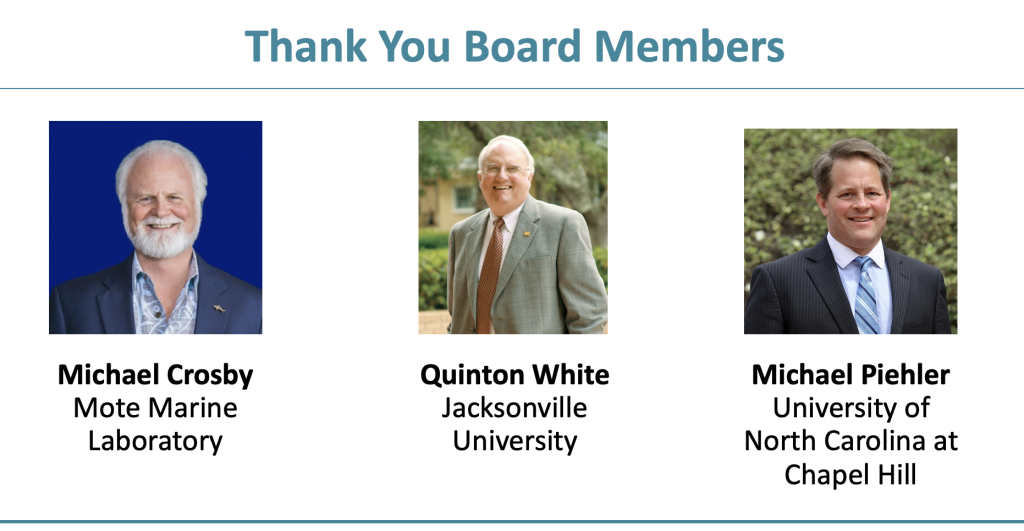
Thank you to Dr. Michael Crosby (Mote Marine Laboratory and Aquarium), Dr. Quinton White (Jacksonville University), and Dr. Michael Piehler (University of North Carolina Chapel Hill) for their service on the SECOORA Board these past three years! A warm welcome to our new Board Members Dr. Duane DeFreese (Indian River Lagoon Council) and Dr. Bryan Franks (Jacksonville University). And welcome to returning Board Members Dr. William Savidge (UGA Skidaway Institute of Oceanography) and Dr. Jeff Copeland (WeatherFlow).
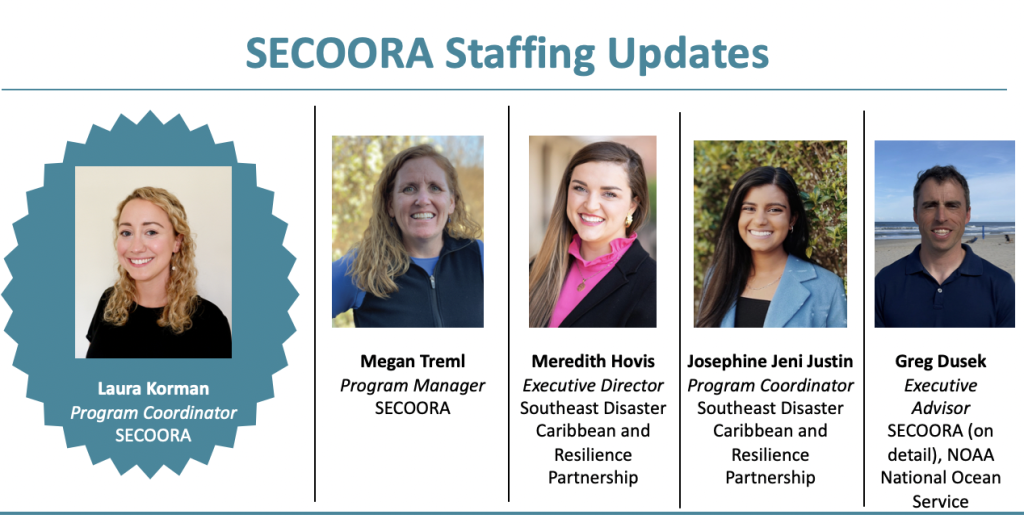
SECOORA welcomed Laura (Korman) Nunnamaker, Megan Treml, Dr. Meredith Hovis, Josephine Jeni Justin, and Dr. Greg Dusek to the team.
SECOORA members influence and guide all our endeavors and help make us a trusted source for coastal ocean information in the Southeast. SECOORA welcomed a new member Jeanette Schnars from Bay Point Island Foundation and newly designated member representatives Tracey Smart and Bryan Franks. Click here to learn more about membership.
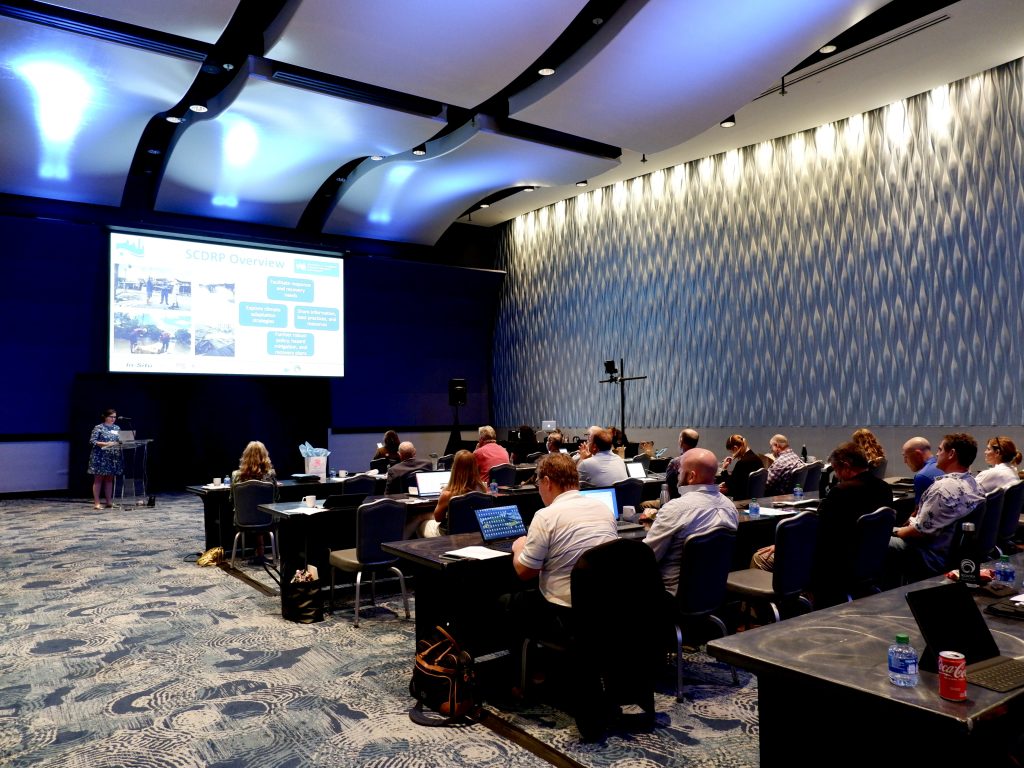
All SECOORA PIs participated in a lightning talk session where they provided an overview of their project, accomplishments, challenges, and future goals (click here for abstracts). A few highlights include an update from Dr. Meredith Hovis, Southeast & Caribbean Disaster Resilience Partnership (SCDRP) Executive Director, presenting how SCDRP is a partnership working to facilitate response and recovery needs while also exploring climate adaptation strategies. Dr. Mike Muglia, from East Carolina University, presented an update on behalf of the High Frequency radar team. Updates include new radars on the east coast of Florida and Myrtle Beach, South Carolina.
Day 1 closed with a social and walk-through of the Georgia Aquarium. This couldn’t have happened without our sponsors: InSitu (Silver sponsor, pictured above), TetraTech, Environmental Research Group, and CODAR. SECOORA honored long-time members and supporters who are retiring at the social, continuing the tradition from the December meeting. SECOORA thanks Robert Weisberg (University of South Florida College of Marine Science), Marcel Reichert (South Carolina Department of Natural Resource), Rick DeVoe (South Carolina Sea Grant Consortium), and Kathleen O’Kiefe (FWC Fish and Wildlife Research Institute) for their dedication and commitment to SECOORA since our inception.
Day 2
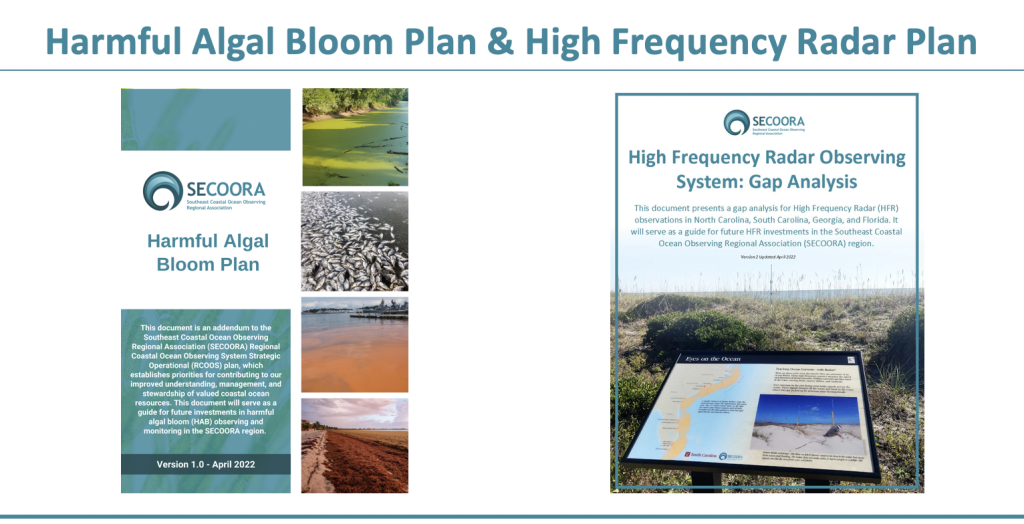
SECOORA staff members provided updates on the SECOORA Regional Coastal Ocean Observing System (RCOOS) Plan. There is a new Harmful Algal Bloom (HAB) Plan intended to serve as a guide for future investments in HAB observing. SECOORA updated the High Frequency Radar Plan and there is a Modeling Strategy in development that will prioritize modeling development and assess modeling gaps and opportunities.
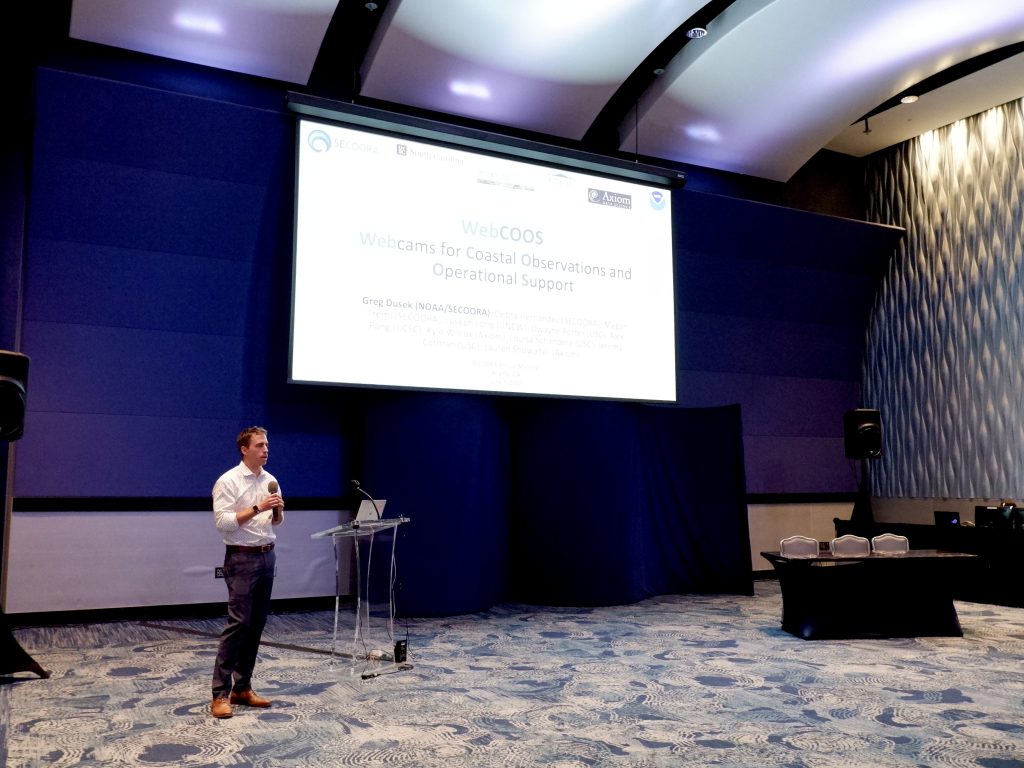
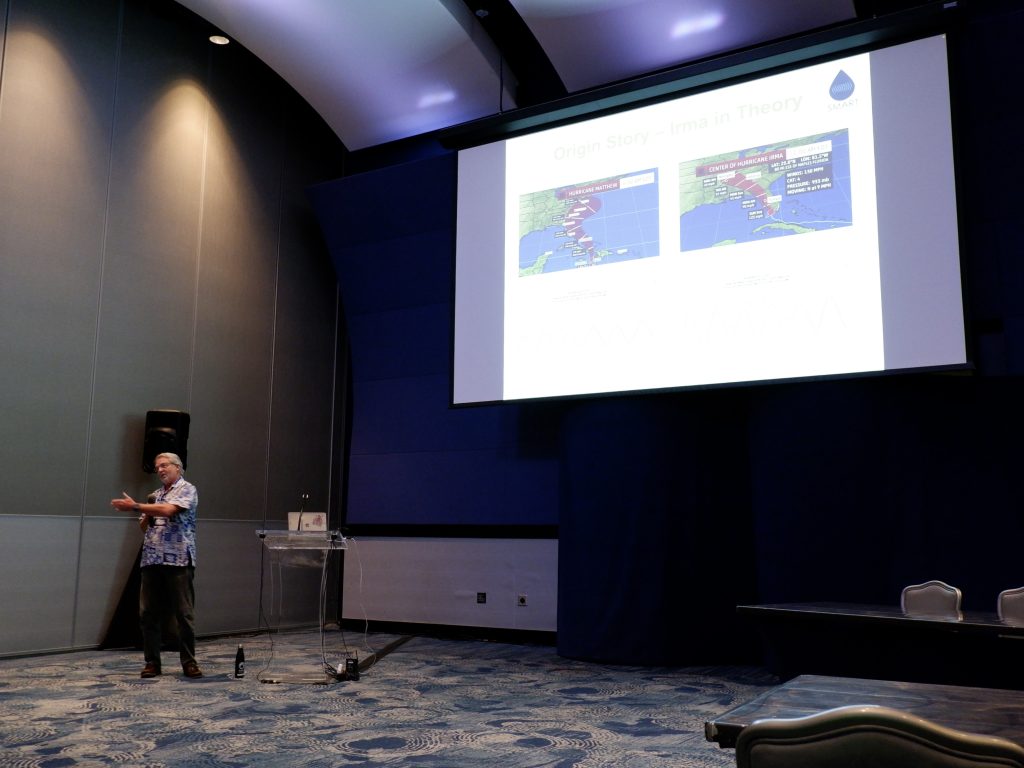
The Lower Cost Observing Technology panel overviewed how different technologies – wave-buoys, drones, web cameras, and water level sensors – are filling gaps and meeting community needs. Highlights from this panel include a presentation from Dr. Russell Clark, Georgia Tech, presenting on the Southeast Water Level Network. The Southeast Water Level Network installs water level sensors throughout to provide real-time visibility and fill gaps in the coastline. Dr. Greg Dusek also provided an update on WebCOOS and how it has the potential to transform how we observe the coastal ocean.
The meeting closed with ecosystem and biological data demonstrations. Lauren Showalter from Axiom Data Science presented SECOORA’s biological projects that Axiom supports. Joy Young from The FACT Network presented their new Data Visualization tool that allows users to choose species and timeframe to see the distribution and range of acoustically tagged animals.
Thank you for joining us for the SECOORA 2022 Annual Meeting! We can’t wait to see you in 2023. Sign up for our newsletter for updates.
Meeting Materials
- Final Meeting Agenda
- Principal Investigator Abstracts
- Speaker and Moderator Bios
- 2022 Board of Director’s Election Procedural Framework
- Conflict of Interest Policy
- Conflict of Interest Form
- Current List of SECOORA Contracts
- 2022 Board of Elections Slate
- Institutional Member | Industry/Private Sector(one seat) : Jeff Copeland, Weatherflow (CV)
- Institutional Member | Public Agencies/ Non-Profit/ Other Sector (one seat) : Duane DeFreese, Indian River Lagoon Council (CV)
- Institutional Member | Academic/Research/Education (one seat) : Bryan Franks, Jacksonville University (CV)
- At Large GA (one seat) : William Savidge, Skidaway Institute of Oceanography at University of Georgia (CV)
Meeting Presentations
June 8, 2022
SECOORA Updates
- Treasurer Report
- Governance Committee Update
- SECOORA Funded Projects
- SECOORA Committee and Staff Updates
- SECOORA Members Business Meeting
Principal Investigator Talks
- Marine Operations
- East Florida Moorings – Rick Cole, RDSEA International, Inc.
- North Carolina and South Carolina Moorings – Jennifer Dorton, SECOORA
- West Florida Shelf Moorings and Modeling – Robert Weisberg, University of South Florida
- High Frequency Radar – Mike Muglia, ECU Coastal Studies Institute
- High Frequency Radar Plan and FCC Update – Cliff Merz, University of South Florida
- Coastal Hazards and Climate Variability
- Southeast Water Level Network – Nicole Elko, American Shore & Beach Preservation Association
- SECOORA Glider Observatory – Catherine Edwards, Skidaway Institute of Oceanography
- Southeast and Caribbean Disaster Resilience Partnership – Meredith Hovis, North Carolina State University, SCDRP Executive Director
- Ecosystem: Water Quality & Living Marine Resources
- The FACT Network – Joy Young, The FACT Network
- Water Quality Decision Support Tools – Dwayne Porter, University of South Carolina
- University of Georgia – Gray’s Reef Mooring
- Southeast Ocean and Coastal Acidification Network – Janet J. Reimer, University of Delaware, SOCAN Program Coordinator
- Data Management and Visualization
- Artificial Intelligence: Annotation, Data Standards, and Applications – Luke McEachron Florida Fish and Wildlife Conservation Commission
- Fisheries Data Access – Tracey Smart, South Carolina Department of Natural Resources
- Data Management and Communications – Kyle Wilcox, Axiom Data Science
- CNAPS Model – Ruoying He, North Carolina State University & Fathom Science
- RENCI Model – Brian Blanton, University of North Carolina at Chapel Hill
- BioTracks – Neil Hammerschlag, University of Miami
- South Carolina Soundscape Observatory – Eric Montie, University of South Carolina Beaufort
- Sargassum Forecasting – Chuanmin Hu, University of South Florida
June 9, 2022
SECOORA Regional Coastal Ocean Observing System (RCOOS) Plans Update
- Harmful Algal Bloom Plan – Laura Korman, SECOORA
- High Frequency Radar Plan – Jennifer Dorton, SECOORA
- Modeling Plan – Greg Dusek, SECOORA (on detail), NOAA National Ocean Service
Lower Cost Observing Technology Panel
- Water Level – Russel Clark, Georgia Institute of Technology
- Cameras – Greg Dusek, SECOORA (on detail), NOAA National Ocean Service
- Wave Buoys – Jennifer Dorton, SECOORA
- Drones – John McCombs, NOAA’s Office for Coastal Management
Ecosystem and Biological Data Demos
- Data Visualization Tool (DaViT) – Joy Young, FACT Network
- Biological Data Demo – Lauren Showalter, Axiom Data Science
